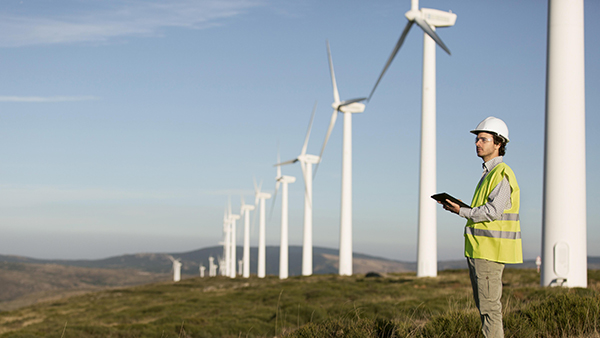Innovation and energy efficiency are playing a pivotal role in the evolution of the renewable energy sector, especially in the development of wind energy. To reach the horizon of 2030 with energy goals achieved, it is essential to focus on the development and application of new technologies, processes, and business models that enhance efficiency, sustainability, and diversification of energy sources.
In the wind sector, the main advances have been focused on the design and manufacturing of more efficient wind turbines, with longer blades and lighter and more resistant materials. Wind energy has gone a step further, perfecting offshore installation techniques, where the winds are stronger and more constant. Innovation has also centered on optimizing the prediction and management of intermittent wind energy generation.
The diversification of renewable energy sources and the integration of efficient storage systems are other areas where innovation is playing a vital role. Hybrid systems, which combine various renewable energy sources such as solar and wind along with storage systems, are allowing for more stable and reliable generation.
The development of smart grids, also known as intelligent energy systems, is another significant advancement that is enabling the optimization of energy generation, distribution, and consumption. This facilitates greater integration of renewable energies, real-time monitoring of demand and energy supply, and active participation of consumers.
Furthermore, the storage of the green energy generated is considered one of the main challenges of the renewable energy sector. Advances in research are pointing towards the development of more advanced batteries, with higher energy density, faster charging times, and lower costs. High-temperature thermal storage technologies are also being explored, and work is underway on the development of green hydrogen as a promising option for energy storage and utilization.
In conclusion, innovation is driving the transformation of the energy sector, especially in wind energy. To keep pace with these changes and achieve a more sustainable and efficient future, continuous training and the acquisition of new skills and knowledge become essential aspects for companies and professionals in the sector.
Programs like BTTE, which offer basic technical training in electricity and follow the international GWO standard, could be impacted by these advancements, so we remain vigilant to stay updated.
